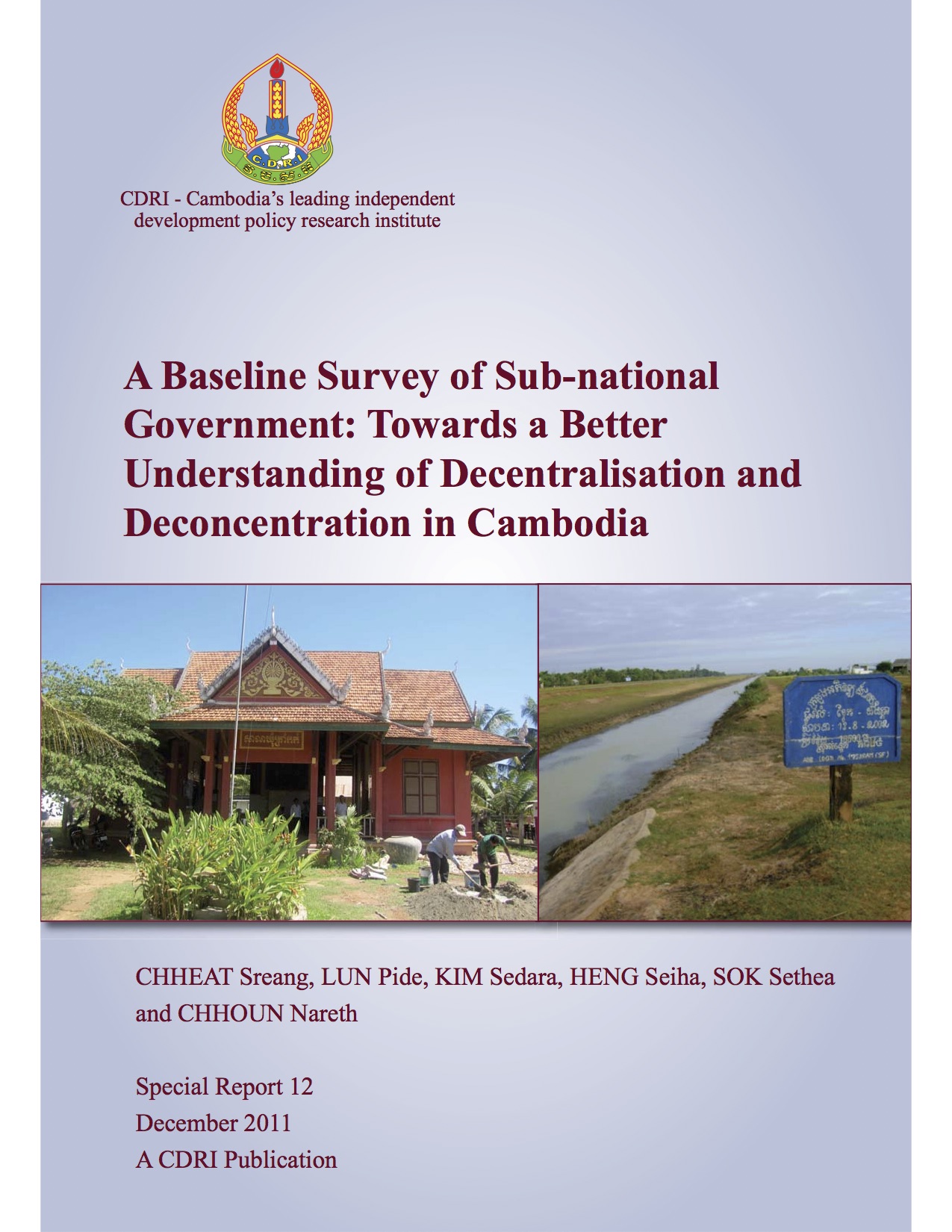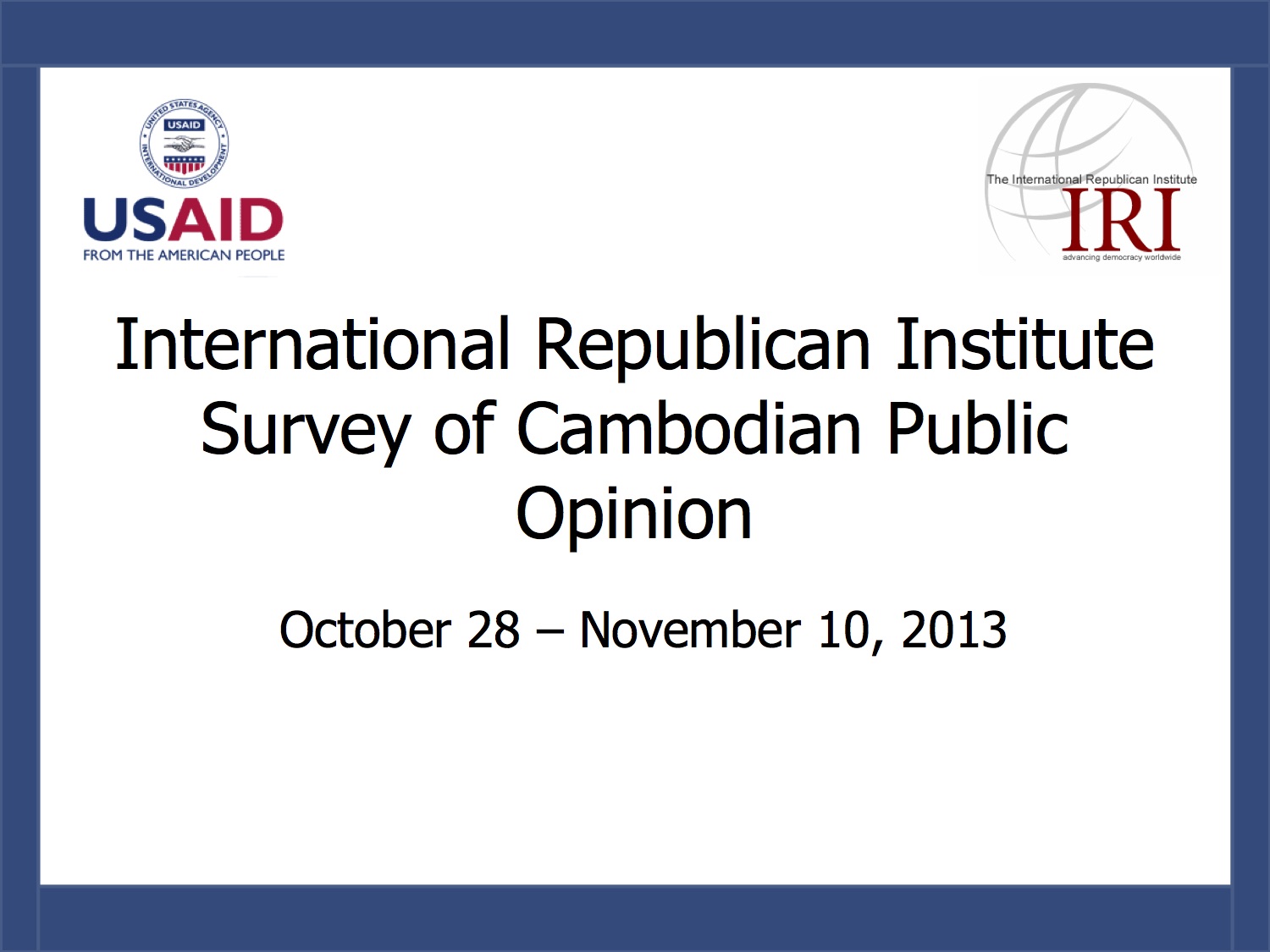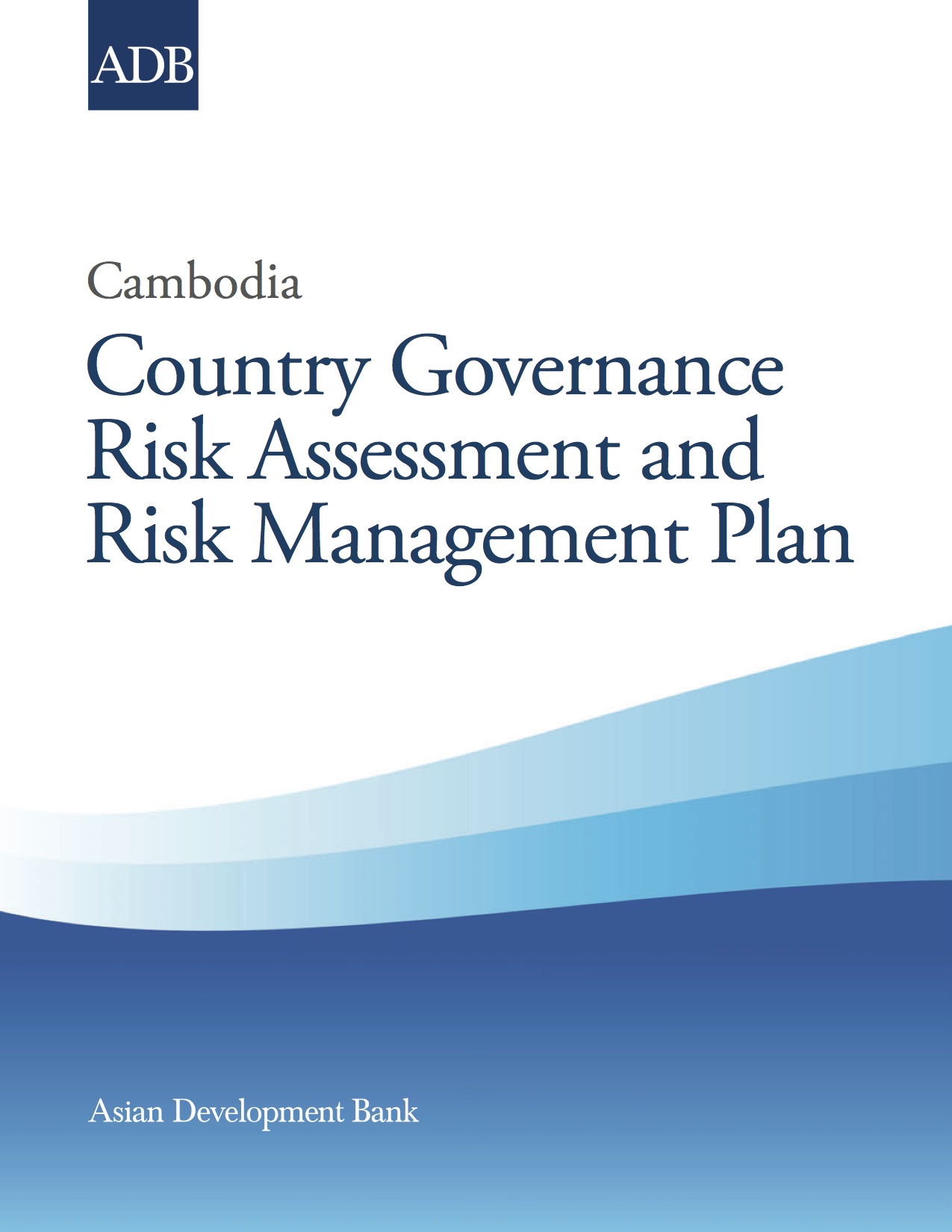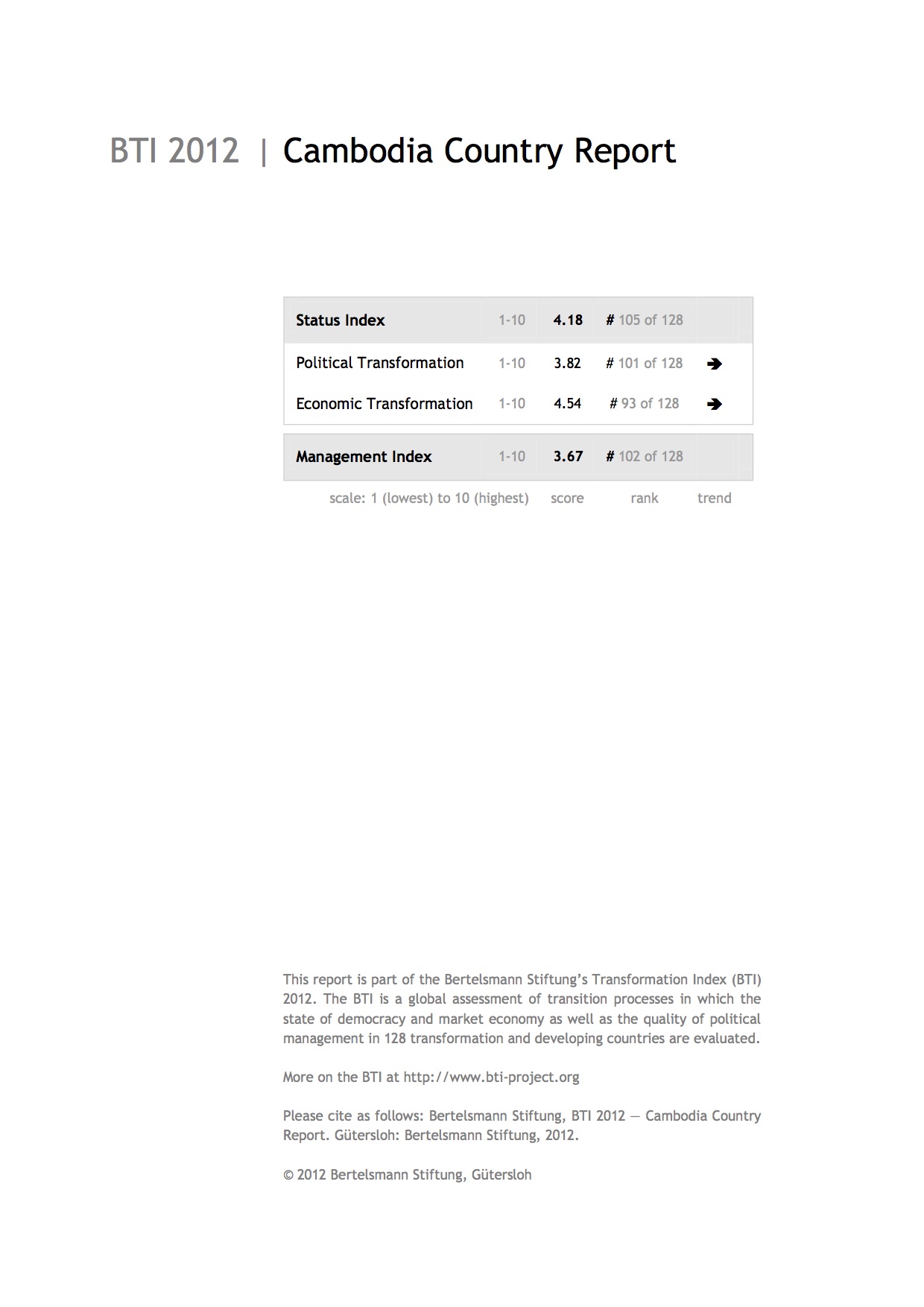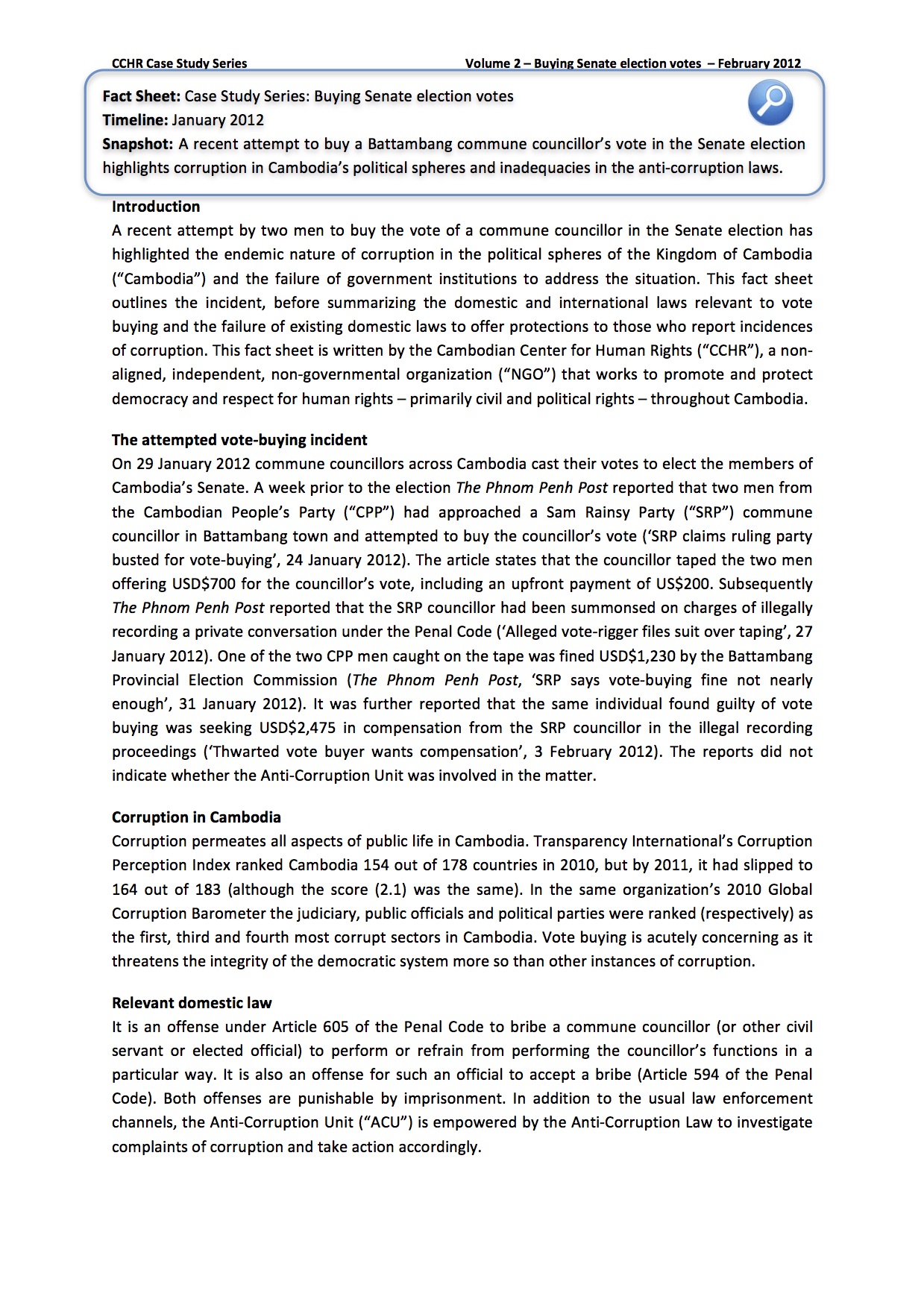Latest Entries
A Baseline Survey of Sub-national Government: Towards a Better Understanding of Decentralisation and Deconcentration in Cambodia
Publication Year: 2011 / Sources: Cambodia Development Resource Institute (CDRI)As Cambodia’s decentralisation and deconcentration reform moves into its second stage, it is attracting close scrutiny from policy makers, donors and academics. Adoption of the Organic Law in 2008, in line with the reform strategy of 2005, paved the way for the first election in May 2009 of district1 and provincial councils which are to improve service delivery and facilitate local government. The establishment of these two administrative layers offers communes2 the opportunity to choose the councillors from whom they demand accountability, and introduces a new relationship between commune councillors and higher councils. District and provincial councillors took office more than a year ago, yet there is no available study of their relations with their voters, the commune councillors. With long-term funding from the Swedish International Development Cooperation Agency, CDRI – through its Democratic Governance and Public Sector Reform programme – has undertaken a survey of relations between commune and district authorities in the new arrangement.
International Republican Institute Survey of Cambodian Public Opinion
Publication Year: 2014 / Sources: United States Agency for International Development (USAID), The International Republican Institute (IRI)—
Download: English | KhmerCountry Governance Risk Assessment and Risk Management Plan
Publication Year: 2012 / Sources: Asian Development Bank (ADB)This is the first country-level governance risk assessment and risk management plan (GRARMP) for Cambodia. It has been prepared using the Second Governance and Anticorruption Action Plan (GACAP II) of the Asian Development Bank (ADB) and its implementation guidelines. The assessment is risk-based and looks both at risk in relation to fiduciary matters and broader governance risks to achieving satisfactory development outcomes. The approach is based around three core governance areas: public financial management (PFM), procurement, and corruption. Over time, governance assessments of key sector risks and program and project fiduciary risks in Cambodia will be carried out following the GACAP II guidelines. The existing good governance framework (GGF) methodology (which was introduced in 2007 prior to adopting the Guidelines for Implementing GACAP II) in place for monitoring governance risks in ADB-financed projects in Cambodia is likely to be phased out. This governance risk assessment is one of the diagnostic studies prepared to inform ADB’s country partnership strategy (CPS) 2011–2013. It was developed concurrently with the CPS and discussed extensively with all relevant government stakeholders. To a large extent, approaches to mitigating major governance risks can only be successfully pursued if adequate resources and financing are provided. Thus, the recommendations of the risk assessment and risk management plan are related to future funding under the CPS.
Cambodia Country Report
Publication Year: 2012 / Sources: Bertelsmann Stiftung, GüterslohThe major tendencies of the last several years continued in 2009 and 2010. The Cambodian People’s Party (CPP) strengthened its grip on Cambodian politics, further eroding the democratization process and stabilizing its de facto one-party rule. Economic growth halted in 2009 due to the global financial crisis and declines in both foreign investment and trade exports. However, the economy has begun to recover, owing to the dynamism of key sectors and targeted investment by the government. Persistent structural deficits including an unequal distribution of wealth, a growing gap between wealthy and poor Cambodians, and corruption prevent sustainable development.
Case Study Series: Buying Senate Election Votes
Publication Year: 2012 / Sources: Cambodian Center for Human Rights (CCHR)A recent attempt by two men to buy the vote of a commune councillor in the Senate election has highlighted the endemic nature of corruption in the political spheres of the Kingdom of Cambodia (“Cambodia”) and the failure of government institutions to address the situation. This fact sheet outlines the incident, before summarising the domestic and international laws relevant to vote buying and the failure of existing domestic laws to offer protections to those who report incidences of corruption. This fact sheet is written by the Cambodian Center for Human Rights (“CCHR”), a non-aligned, independence, non-governmental organization (“NGO”) that works to promote and protect democracy and respect for human rights — primarily civil and political rights — throughout Cambodia.

